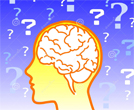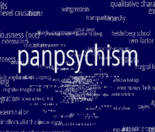Monday, 29 February 2016
When Advertisements Steal Our Attention

A New York Times article by Matthew B. Crawford, entitled “The Cost of Paying Attention” (first link below) analyzes the way that the public space is being invaded by advertising. First, he points out that attention is a limited cognitive resource. He shows how private businesses are waging a veritable war to appropriate our “private head space” with advertising messages, thus making it harder and harder for us to resist these constant, alienating “bottom-up” stimuli and exercise “top-down” control over our own thoughts. In this process, says Crawford, we are losing something vital: “Just as clean air makes it possible to breathe, silence makes it possible to think.” (more…)
The Emergence of Consciousness | Comments Closed
Monday, 15 February 2016
Neural Reuse as a Way of Moving Beyond Phrenology

Michael Anderson’s book After Phrenology: Neural Reuse and the Interactive Brain, published in December 2014, offers a relatively new way of looking at the human brain. Phrenology, referred to in the the book’s title, was a pseudo-discipline developed by Franz Joseph Gall in the early 19th century. It postulated that the brain was composed of various modules corresponding to various functions or behaviours observable in human beings. It also postulated that the bumps in a person’s skull corresponded to the personality traits that were more or less developed in that individual, such as mirthfulness, benevolence, ambitiousness, or cautiousness. (more…)
Evolution and the Brain | Comments Closed
Monday, 1 February 2016
Two Scientific Models Called into Question

Every scientific theory consists of models that can be used to generate hypotheses that can be tested by observation or experimentation. If the observations or experimental results are inconsistent with what the models predict, then the models themselves must be called into question. Recent developments in neuroscience provide two examples of models that are going to have to be adjusted to such “abnormal data”, as Thomas Kuhn has called them. (more…)
From Thought to Language, Mental Disorders | Comments Closed
Tuesday, 19 January 2016
Device screens: tools of liberation, or enslavement?
 As a parent, I sometimes find my patience sorely tried when my teen is so busy playing with his iPod that I have to call him 50 times for dinner. He’s not impressed when I tell him that what he’s doing with his gadget (usually, pressing some kind of button to score some kind of points) is no different from the laboratory rats who keep frantically pressing a lever because they have learned that that will get them a pellet of food. Such operant conditioning is a powerful mechanism, very well preserved in humans because of its obvious adaptive value, but it can easily hypnotize us if we do not realize its power.
As a parent, I sometimes find my patience sorely tried when my teen is so busy playing with his iPod that I have to call him 50 times for dinner. He’s not impressed when I tell him that what he’s doing with his gadget (usually, pressing some kind of button to score some kind of points) is no different from the laboratory rats who keep frantically pressing a lever because they have learned that that will get them a pellet of food. Such operant conditioning is a powerful mechanism, very well preserved in humans because of its obvious adaptive value, but it can easily hypnotize us if we do not realize its power.
The potential dangers of screen devices were the topic of a symposium held at the University of Quebec at Trois-Rivières in March 2015 (for the agenda, see the first link below). (more…)
Pleasure and Pain | Comments Closed
Tuesday, 5 January 2016
Is Consciousness Ubiquitous?

When scientists are trying to explain some of the strangest, most complex phenomena, such as the origins of the universe or human consciousness, it’s not so surprising that some of the hypotheses they come up with are pretty surprising themselves!
For example, in recent years, some of the most important researchers in the field of human consciousness have begun to embrace panpsychism, the view that consciousness is an attribute present throughout the physical world, and not only in human beings and a few other other large primates. This belief has traditionally been regarded skeptically by Western science and associated chiefly with Eastern spirituality or various New Age doctrines. (more…)
The Emergence of Consciousness | Comments Closed








